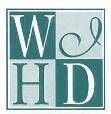WIHD Conference on Assessment Strategies for Young Children with ASD and other Developmental Disabilities
September 29, 2011

|
The Westchester Institute for Human Development put on a unique conference on evaluation and assessment of children in the early intervention and preschool special education system in Westchester County, New York. Besides updating providers and school personnel on current approaches for detecting and diagnosing ASD in children birth to 5 years, a focus of the conference was promoting better assessment strategies for preschoolers with disabilities. Many school psychologists learn a limited number of traditional standardized "intelligence" tests during their training and then continue to apply them in school settings. Moreover, school administrators tend to dictate what instruments should be used in part because of familiarity with their interpretation. Conference presentations reviewed test theory and best practices, and presented information on specialized tests (e.g., Leiter-R, Mullen, Differential Abilities Scales-II, KABC-II), on blending criterion-referenced and standardized assessment, and on play-based and naturalistic assessment of cognition and language. Sessions were also held on autism-specific measurements, from instruments filled out by caregivers and by clinicians to structured play interactive instruments. "Starter kits" of manuals and protocols for several of these instruments were given to qualifying evaluators, and a Lending Library was established to loan out expensive standardized instruments and training resources so providers could learn and use them before requesting that their district purchase them. Finally, internet-based self-paced modules were made from the PowerPoint conference presentations so that they could be accessed more widely through a conference-associated website. This activity was supported by a Professional Development Training grant through the Westchester County Department of Health.







